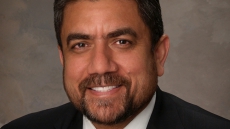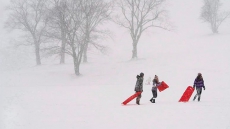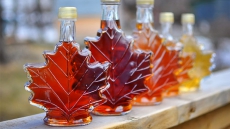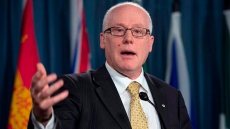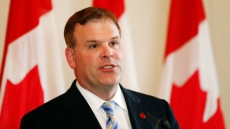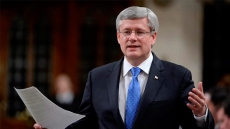OTTAWA — The spectre of a looming election, combined with the imminent end of a generous public subsidy, has added a heightened sense of urgency to federal political parties' annual year-end fundraising frenzy.
The email blasts from the three main parties have been coming fast and furious over the past few weeks, urging supporters — as they do every year — to donate before Dec. 31 in order to qualify for a tax credit in the current year.
But they've also played heavily on the notion that every penny is desperately needed to fight and win the next election, scheduled for October 2015.
"You will provide the extra dollars we'll need to help Conservative candidates win the big Federal Election in 2015 when 338 seats are up for grabs," the ruling party said in a recent "special alert" fundraising missive.
"Make no mistake: This is truly urgent. Your help is needed now."
Some opposition party pitches for money have ratcheted up the urgency quotient by warning of the possibility that an election campaign could be just weeks away — if Prime Minister Stephen Harper breaks his fixed-date election law.
"If the pundits are right and Stephen Harper calls an early election, this (Dec. 31) could be the last fundraising deadline of our campaign," warned an NDP missive sent out over the past weekend.
The fundraising appeals don't mention it but there is another big reason why the parties are eager to pump up their donation hauls: the per-vote public subsidy on which they've relied since 2006 comes to end in the new year.
The Harper government has been gradually phasing out that subsidy over the past several years but it was still worth $3.7 million to the Conservatives in 2014, $2.8 million to the NDP and $1.8 million to the Liberals. In 2015, they'll get nothing.
"It's a lot to make up," said NDP national director Anne McGrath. "So I think that partly explains why you've seen all the political parties really accelerate their fundraising efforts."
New Democrats will have another hole to fill in their coffers in the new year as a new cap of $1,500 on bequests to political parties goes into effect. The NDP has been the primary beneficiary of bequests in the past, raking in more than $800,000 from the estates of fewer than 20 deceased supporters between 2007 and 2012.
While many might consider the constant appeals for money to be an annoyance, McGrath says there's "a real science and art" to it. Among other things, each party tries to find the message and messenger most likely to trigger donations and tries to tailor its appeals to a supporter's financial circumstances and donation history.
A glimpse of the varying strategies employed by the three main parties can be seen in the differing amounts of money each has been soliciting lately from supporters who've donated little or nothing thus far: the Conservatives have been asking supporters to chip in $15 to $45, the NDP $5 and the Liberals just $3.
"We know that most Canadians don't have a lot of disposable income to be donating to political parties," said Liberal national director Jeremy Broadhurst.
Since the Liberal party dropped its "minimum ask" to $3 about a year ago, Broadhurst said the number of donors has increased "dramatically."
The small amounts requested by both the Liberals and NDP are evidence of what is known in political organizing circles as the "ladder of engagement" — the notion that if a person gets involved in a party in a small way, they can be encouraged over time to get more involved.
"We've seen that once a person has donated once, they are far more likely to further engage with the party, sometimes by donating again but also by becoming a member, participating in the party's open nomination process or volunteering for the party," said Broadhurst.
"If we were setting the bar too high on that initial (donation) ask, we could risk losing that ongoing engagement before it even gets started."
McGrath noted that fundraising appeals are "segmented" so that the message and the "ask" would be different for those who've previously donated.
Conservative party spokesman Cory Hann declined to say why his party has been asking for larger donations than either opposition party, saying "our fundraising strategy is an internal matter." But it may reflect the fact that the ruling party has a more established donor base and its supporters are higher up the "ladder of engagement" than either the Liberals or NDP supporters.
"I can say that our fundraising totals show that Canadians have been responding and donating so the prime minister can continue his strong, dependable leadership," Hann said.
The Conservatives have been the undisputed champions of fundraising since 2006, when corporate and union donations on which the Liberals and NDP respectively had relied, were prohibited and strict caps were put on individual donations.
However, the Liberals have been steadily eroding the Conservatives' fundraising advantage since Justin Trudeau became Grit leader 20 months ago.
Last year, the Tories raked in $18.1 million, compared to $11.3 million for the Liberals and $8.2 million for the NDP.
In the first nine months of this year, the Tories pulled in $13.5 million to the Liberals' $10 million and the NDP's $5.7 million.
